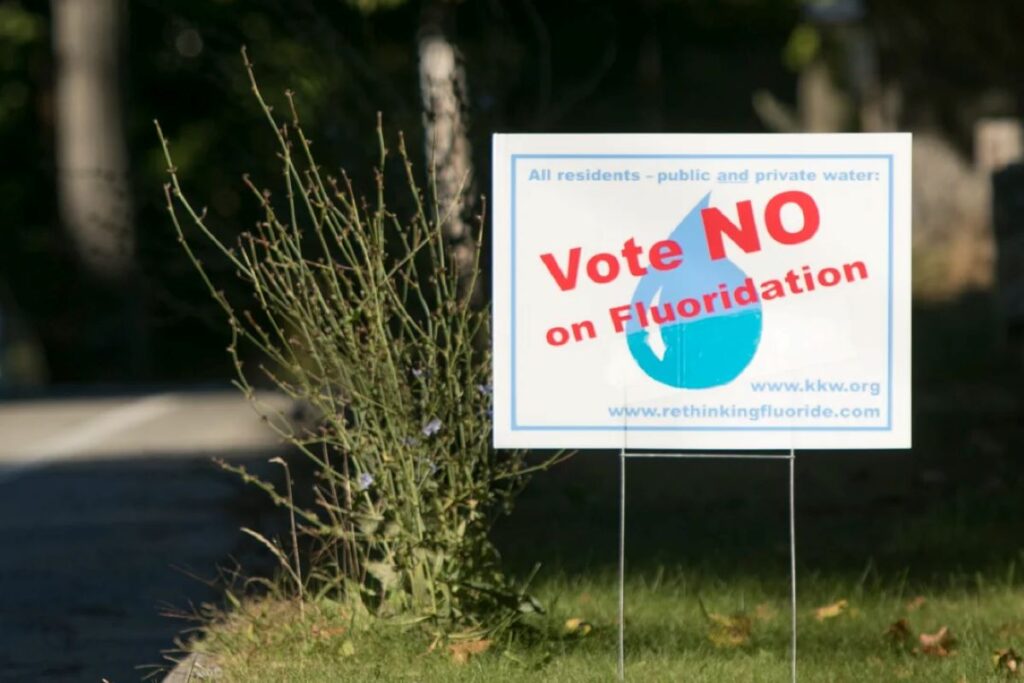
Regina Barrett who is a 69-year-old retiree from Monroe, North Carolina, isn’t a fan of her tap water lately. “Our water has been cloudy and bubbly and looks milky,” she says, blaming fluoride, a mineral added to water to prevent cavities. “I don’t want fluoride in my nothing!”
Barrett is not the only person who has been thinking in this direction. It is a growing sentiment. Despite large amounts of data supporting fluoride benefits, more people have doubts about its effectiveness and still worry about its safety.
In Union County, where Monroe lives, the Board of County Commissioners recently voted to stop adding fluoride to the water supply. What came as a result of this were heated debates among residents and officials.
Some, like Commissioner Richard Helms, believe in its benefits, citing his children’s good dental health: “My children had the blessing of growing up with fluoride in their water, and … they have very little dental issues.”
ALSO READ: These Cities Have Become So Dirty It’s Now a Public Health Problem
Others, like Commissioner David Williams, say it’s more of a personal choice and should not be imposed on everyone. “Let’s stop putting something in the water that’s meant to treat us and give people the freedom to choose.” was his argument.
While Union County stopped adding fluoride to its water, Monroe still uses it. This difference in opinion doesn’t exist only in Union County. From Oregon to Pennsylvania, many communities have either stopped or opposed water fluoridation based on individual choice. They argue that with fluoride in dental products, adding it to water is not necessary.
But public health officials warn against this. They say that water fluoridation is safe, effective, and cost-saving. Removing fluoride could not benefit low-income families who rely on water for dental care.
Myron Allukian Jr., a dentist, spoke about prevention over treatment. He shows that millions have lived with fluoridated water without having any health issues. However, groups like the Fluoride Action Network claim fluoride causes various health problems, from acne to even bone cancer.
POLL—Should the Government Increase Taxes on the Wealthy To Reduce Economic Inequality?
It is local counties that make the laws for water fluoridation, which is why there are different outcomes depending on their locations. Juneau, Alaska, removed fluoride in 2007 but saw increased dental costs. Portland, Oregon, consistently rejects fluoridation despite expert recommendations.
Similarly, Wichita, Kansas, and Brushy Creek, Texas, rejected fluoride despite professional advice. Collier County, Florida, initially kept fluoride but reversed course due to public pressure.
Pennsylvania’s State College Borough Water Authority stopped fluoridation in response to concerns about health effects and environmental contamination. Controversy extends beyond the U.S. In Canada, a study linked prenatal fluoride exposure to lower IQ, which seems to make it even worse.
Some groups have petitioned the EPA to end water fluoridation, alleging neurotoxicity. A recent federal lawsuit challenges the EPA’s stance, waiting for a ruling that could affect national fluoridation policies.
ALSO READ: Mental Health Expert Warns People Turning to AI Therapists
For now, everyone is going with local decisions, which has been frustrating some, like Barrett. They question what’s most important: dental health or basic needs like housing and food.
You Might Also Like:
Angel Reese Leaves LSU for the WNBA
DOJ Maintains It Will Not Turn Over Biden’s Interview With Hur, Risks Contempt of Congress
Bodycam Footage Shows Ohio Police Officer Shooting Black Teen Holding a Toy Gun
Giant Lake Returns 130 Years After Vanishing
Workers Say Employers Should Pay for Their Commute
